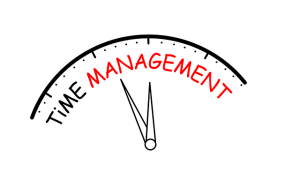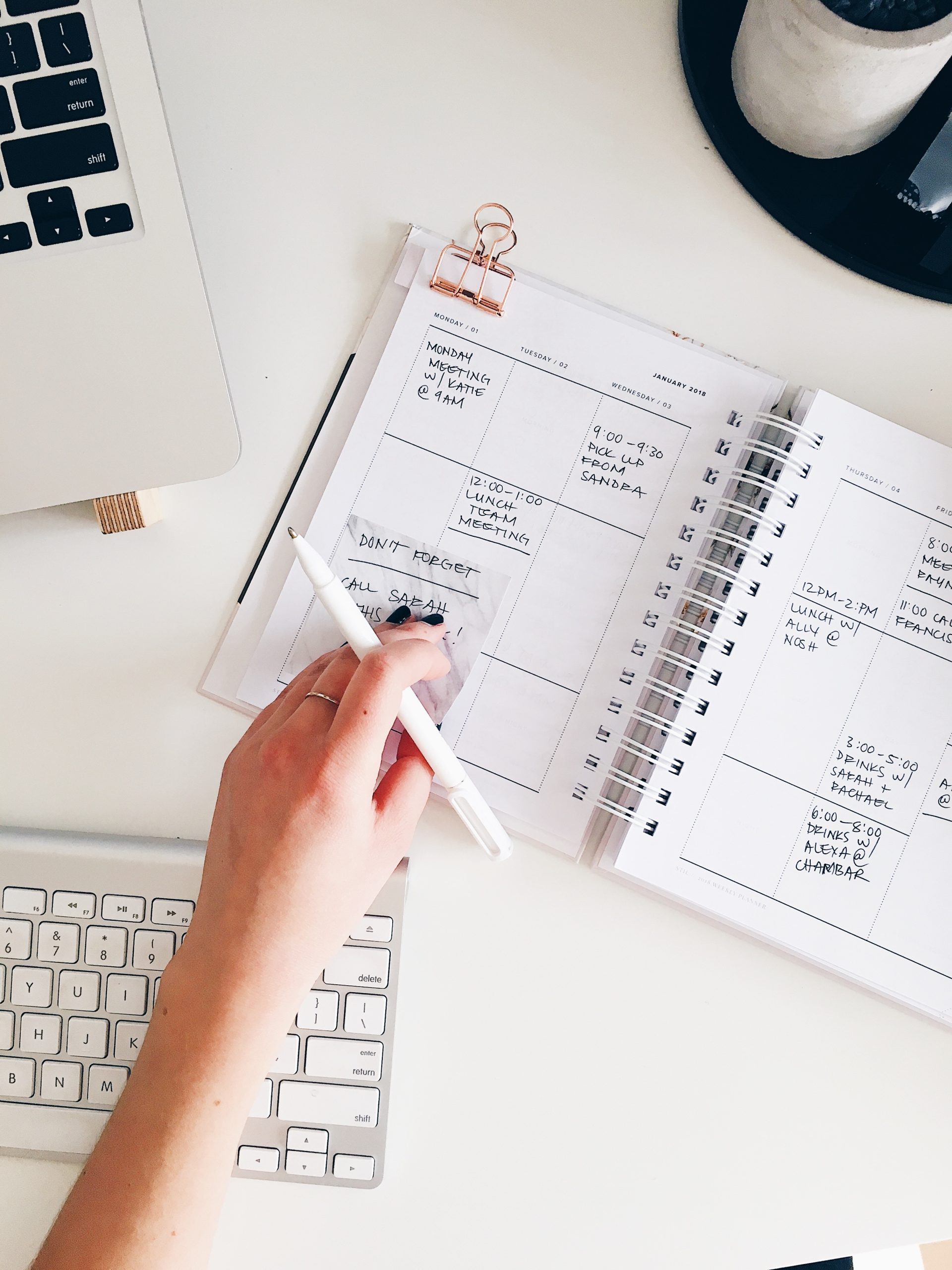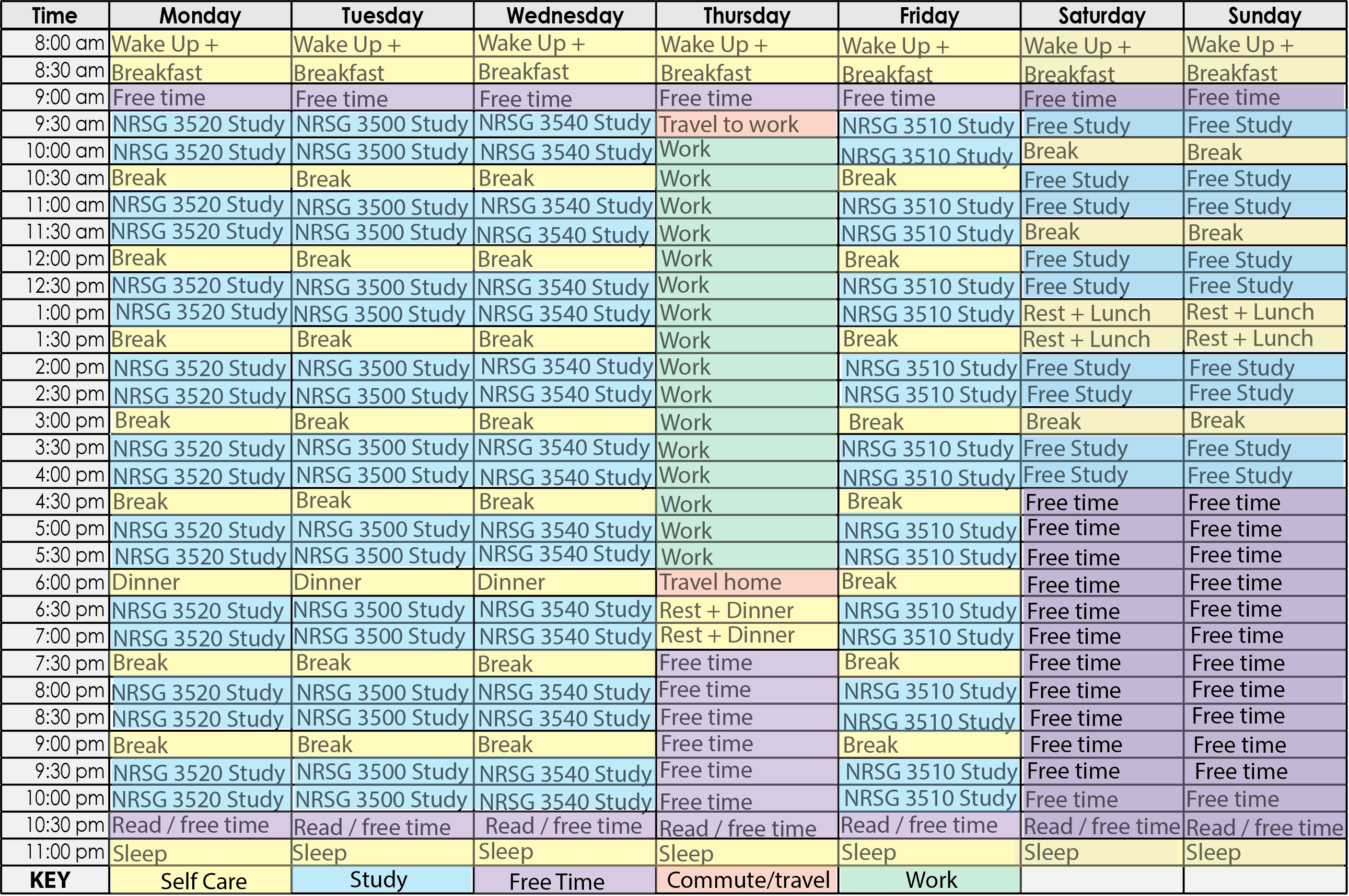10 Things Successful Students Do
6 Successful students get it together
It begins with simple things like making sure you have all your books and materials with you when you get to class and leads to more complex things like creating a study schedule. It is about getting a handle on what you need to do as a student and what demands will be on your time in terms of preparing for classes, reading, studying and working on homework and assignments. Planning ahead, and then following your plan, is the essence of time management. Thinking about what needs to be done and having a plan for doing the work can really help you reduce your stress. Learning strategies to stay on track, avoiding distractions of people and technology, and to preventing procrastination will pay off not only in college but also in your career thereafter. Plan your use of time based on your “time personality” after assessing how you typically use your free time. Then use an academic weekly and daily planner to schedule blocks of time most efficiently. Start well ahead of deadlines to prevent last-minute stresses and problems completing your work.
Going to college will be challenging and to do well in your studies will take more time then you might first think. You will probably spend about fifteen hours a week in classes and you can expect to spend two hours of prepping, reading, studying and homework for each hour in classes. This means you are looking at forty-five hours of your week devoted to your studies. This is about the number of hours you might expect to spend at a full time job. It is important that you are willing to put in the time but it can be difficult to manage the competing demands of different courses, outside work and personal/social needs. That is why it is vital to get it together now by organizing you space and your time.
Organizing Your Space
It’s time to get organized. You need to organize both your space and your time.

Space is important for many reasons—some obvious, some less so. People’s moods, attitudes, and levels of work productivity change in different spaces. Learning to use space to your own advantage helps get you off to a good start in your studies. Here are a few of the ways space matter:
- Everyone needs their own space. This may seem simple, but everyone needs some physical area, regardless of size, that is really their own—even if it’s only a small part of a shared space. Within your own space, you generally feel more secure and in control.
- Physical space reinforces habits. For example, using your bed primarily for sleeping makes it easier to fall asleep there than elsewhere and also makes it not a good place to try to stay awake and alert for studying.
- Different places create different moods. While this may seem obvious, students don’t always use places to their best advantage. One place may be bright and full of energy, with happy students passing through and enjoying themselves—a place that puts you in a good mood. But that may actually make it more difficult to concentrate on your studying. Yet the opposite—a totally quiet, austere place devoid of color, sound, and pleasant decorations—can be just as unproductive if it makes you associate studying with something unpleasant. Everyone needs to discover what space works best for them—and then let that space reinforce good study habits.
Use Space to Your Advantage and to Avoid Distractions
Begin by analyzing your needs, preferences, and past problems with places for studying. Where do you usually study? What are the best things about that place for studying? What distractions are most likely to occur there?
The goal is to find, or create, the best place for studying, and then to use it regularly so that studying there becomes a good habit.

- Choose a place you can associate with studying. Make sure it’s not a place already associated with other activities (eating, watching television, sleeping, etc.). Over time, the more often you study in this space, the stronger will be its association with studying, so that eventually you’ll be completely focused as soon as you reach that place and begin.
- Your study area should be available whenever you need it. If you want to use your home, apartment, or dorm room but you never know if another person may be there and possibly distract you, then it’s probably better to look for another place, such as a study lounge or an area in the library. Look for locations open at the hours when you may be studying. You may also need two study spaces—one in or near where you live, another on campus. Maybe you study best at home but have an hour free between two classes, and the library is too far away to use for only an hour? Look for a convenient empty classroom.
- Your study space should meet your study needs. An open desk or table surface usually works best for writing, and you’ll tire quickly if you try to write notes sitting in an easy chair (which might also make you sleepy). You need good light for reading, to avoid tiring from eyestrain. If you use a laptop for writing notes or reading and researching, you need a power outlet so you don’t have to stop when your battery runs out.
- Your study space should meet your psychological needs. Some students may need total silence with absolutely no visual distractions; they may find a perfect study carrel hidden away in the library. Other students may be unable to concentrate for long without looking up from reading and momentarily letting their eyes move over a pleasant scene. Some students may find it easier to stay motivated when surrounded by other students also studying; they may find an open space in the library or a study lounge with many tables spread out over an area. Experiment to find the setting that works best for you—and remember that the more often you use this same space, the more comfortable and effective your studying will become.
- You may need the support of others to maintain your study space. Students living at home, whether with a spouse and children or with their parents, often need the support of family members to maintain an effective study space. The kitchen table probably isn’t best if others pass by frequently. Be creative, if necessary, and set up a card table in a quiet corner of your bedroom or elsewhere to avoid interruptions. Put a “do not disturb” sign on your door.
- Keep your space organized and free of distractions. You want to prevent sudden impulses to neaten up the area (when you should be studying), do laundry, wash dishes, and so on. Unplug a nearby telephone, turn off your cell phone, and use your computer only as needed for studying. If your e-mail or message program pops up a notice every time an e-mail or message arrives, turn off your Wi-Fi or detach the network cable to prevent those intrusions.
- Plan for breaks. Everyone needs to take a break occasionally when studying. Think about the space you’re in and how to use it when you need a break. If in your home, stop and do a few exercises to get your blood flowing. If in the library, take a walk up a couple flights of stairs and around the stacks before returning to your study area.
- Prepare for human interruptions. Even if you hide in the library to study, there’s a chance a friend may happen by. At home with family members or in a dorm room or common space, the odds increase greatly. Have a plan ready in case someone pops in and asks you to join them in some fun activity. Know when you plan to finish your studying so that you can make a plan for later—or for tomorrow at a set time.
Studying While Living with Others

Sometimes going to the library or elsewhere is not practical for studying, and you have to find a way to cope in a shared space. Part of the solution is time management. Agree with others on certain times that will be reserved for studying; agree to keep the place quiet, not to have guests visiting, and to prevent other distractions. These arrangements can be made with a roommate, spouse, and older children.
If there are younger children in your household and you have child-care responsibility, it’s usually more complicated. You may have to schedule your studying during their nap time or find quiet activities for them to enjoy while you study. Try to spend some time with your kids before you study, so they don’t feel like you’re ignoring them. The key is to plan ahead. You don’t want to find yourself, the night before an exam, in a place that offers no space for studying.
Finally, accept that sometimes you’ll just have to say no. If your roommate or a friend often tries to engage you in conversation or suggests doing something else when you need to study, just say no. Learn to be firm but polite as you explain that you just really have to get your work done first. Students who live at home may also have to learn how to say no to parents or family members—just be sure to explain the importance of the studying you need to do! Remember, you can’t be everything to everyone all the time.
Time Management

Time management for successful college studying involves these factors:
- Determining how much time you need to spend studying
- Knowing how much time you actually have for studying and increasing that time if needed
- Being aware of the times of day you are at your best and most focused
- Using effective long- and short-term study strategies
- Scheduling study activities in realistic segments
- Using a system to plan ahead and set priorities
- Staying motivated to follow your plan and avoid procrastination
For every hour in the classroom, college students should spend, on average, about two hours on that class, counting reading, studying, writing papers, and so on. If you’re a full-time student with fifteen hours a week in class, then you need another thirty hours for the rest of your academic work. That forty-five hours is about the same as a typical full-time job. If you work part time, time management skills are even more essential. These skills are still more important for part-time college students who work full time and commute or have a family. To succeed in college, virtually everyone has to develop effective strategies for dealing with time.
Do you have two hours of study time for every hour in class? Many students begin college not knowing this much time is needed, so don’t be surprised if you underestimated this number of hours. Remember this is just an average amount of study time — you may need more or less for your own courses. To be safe, and to help ensure your success, add another five to ten hours a week for studying. To reserve this study time, you may need to adjust how much time you spend in other activities.
Where Should Your Time Go?
Plan for the ideal use of a week’s worth of time. Fill in your hours in this order:
- Hours attending class
- Study hours (2 times the number of class hours plus 5 or more hours extra)
- Work, internships, and fixed volunteer time
- Fixed life activities (sleeping, eating, hygiene, chores, transportation, etc.)
- Discretionary activities
Now subtotal your hours so far and subtract that number from 168. How many hours are left?
This will help you find the remaining hours for “discretionary activities” (things you don’t have to do for school, work, or a healthy life).
This activity shows most college students that they do actually have plenty of time for their studies without losing sleep or giving up their social life. But you may have less time for discretionary activities than in the past. Something, somewhere has to give. That’s part of time management — and why it’s important to keep your goals and priorities in mind. The other part is to learn how to use the hours you do have as effectively as possible, especially the study hours. For example, if you’re a typical college student who plans to study for three hours in an evening but then procrastinates, gets caught up in a conversation, loses time to checking e-mail and text messages, and listens to loud music while reading a textbook, then maybe you actually spent four hours “studying” but got only two hours of actual work done. So you end up behind and feeling like you’re still studying way too much. The goal of time management is to actually get three hours of studying done in three hours and have time for your life as well.
Where Does Your Time Go?
See if you can account for a week’s worth of time. Try this Time Activity.
For each of the activity categories listed, make your best estimate of how many hours you spend in a week. (For categories that are about the same every day, just estimate for one day and multiply by seven for that line.)
- Sleeping
- Eating (including preparing food)
- Personal hygiene (i.e., bathing, etc.)
- Working (employment)
- Volunteer service or internship
- Chores, cleaning, errands, shopping, etc.
- Attending class
- Studying, reading, and researching (outside of class)
- Transportation to work or school
- Getting to classes (walking, biking, etc.)
- Organized group activities (clubs, church services, etc.)
- Time with friends (include television, video games, etc.)
- Attending events (movies, parties, etc.)
- Time alone (include television, video games, surfing the Web, etc.)
- Exercise or sports activities
- Reading for fun or other interests done alone
- Talking on phone, e-mail, social media, etc.
- Other—specify: ________________________
Now use your calculator to total your estimated hours.
Is your number larger or smaller than 168, the total number of hours in a week? If your estimate is higher, go back through your list and adjust numbers to be more realistic. But if your estimated hours total fewer than 168, don’t just go back and add more time in certain categories. Instead, ponder this question: Where does the time go? We’ll come back to this question.
Think about your time analysis in Time Activity.
- People who estimate too high often feel they don’t have enough time. They may have time anxiety and often feel frustrated.
- People at the other extreme, who often can’t account for how they use all their time, may have a more relaxed attitude. They may not actually have any more free time, but they may be wasting more time than they want to admit with less important things. Yet they still may complain about how much time they spend studying, as if there’s a shortage of time.
People also differ in how they respond to schedule changes. Some go with the flow and accept changes easily, while others function well only when following a planned schedule and may become upset if that schedule changes. If you do not react well to an unexpected disruption in your schedule, plan extra time for catching up if something throws you off. This is all part of understanding your time personality.
Another aspect of your time personality involves time of day. If you need to concentrate, such as when writing a class paper, are you more alert and focused in the morning, afternoon, or evening? Do you concentrate best when you look forward to a relaxing activity later on, or do you study better when you’ve finished all other activities? Do you function well if you get up early—or stay up late—to accomplish a task? How does that affect the rest of your day or the next day? Understanding this will help you better plan your study periods.
While you may not be able to change your “time personality,” you can learn to manage your time more successfully. The key is to be realistic. How accurate is the number of hours you wrote down in Time Activity? The best way to know how you spend your time is to record what you do all day in a time log, every day for a week, and then add that up. Make simple chart of the hours in a day and carry it with you. Every so often, fill in what you have been doing. Do this for a week before adding up the times; then enter the total hours in the categories in Time Activity.
You might be surprised that you spend a lot more time than you thought just hanging out with friends—or surfing the Web or playing around with Facebook or any of the many other things people do. You might find that you study well early in the morning even though you thought you are a night person, or vice versa. You might learn how long you can continue at a specific task before needing a break. This is information you can use to better plan your time.
Time Management – Planning
Develop a Semester Schedule
Time Management Strategies
Following are some strategies you can begin using immediately to make the most of your time:

- Use a calendar planner, weekly schedule and daily to-do list. At the beginning of each semester, log important due dates for assignments and tests on a four month calendar. This will give you an overview of the semester and identify particularly busy weeks. Next prepare your ideal weekly schedule with class times and study periods for each day and on the weekends. Add work and other fixed activities after classes and study periods. Consult your calendar and weekly schedule to help determine the tasks you need to complete each day to create a to-do list and consider what study periods you have available that day. For each study period, plan out your activities based on due dates for assignments, preparation needed for next classes and general study to prepare for tests and exams.
- Prepare to be successful. When planning ahead for studying, think yourself into the right mood. Focus on the positive. “When I get these chapters read tonight, I’ll be ahead in studying for the next test, and I’ll also have plenty of time tomorrow to do X.” Visualize yourself studying well!
- Use your best—and most appropriate—time of day. Different tasks require different mental skills. Some kinds of studying you may be able to start first thing in the morning as you wake, while others need your most alert moments at another time.
- Break up large projects into small pieces. Whether it’s writing a paper for class, studying for a final exam, or reading a long assignment or full book, students often feel daunted at the beginning of a large project. It’s easier to get going if you break it up into stages that you schedule at separate times—and then begin with the first section that requires only an hour or two.
- Do the most important studying first. When two or more things require your attention, do the more crucial one first. If something happens and you can’t complete everything, you’ll suffer less if the most crucial work is done.
- If you have trouble getting started, do an easier task first. Like large tasks, complex or difficult ones can be daunting. If you can’t get going, switch to an easier task you can accomplish quickly. That will give you momentum, and often you feel more confident tackling the difficult task after being successful in the first one.
- If you’re feeling overwhelmed and stressed because you have too much to do, revisit your time planner. Sometimes it’s hard to get started if you keep thinking about other things you need to get done.
- Review your schedule for the next few days and make sure everything important is scheduled, then relax and concentrate on the task at hand.
- If you’re really floundering, talk to someone. Maybe you just don’t understand what you should be doing. Talk with your professor or another student in the class to get back on track.
- Take a break. We all need breaks to help us concentrate without becoming fatigued and burned out. As a general rule, a short break every hour or so is effective in helping recharge your study energy. Get up and move around to get your blood flowing, clear your thoughts, and work off stress.
- Use unscheduled times to work ahead. You’ve scheduled that hundred pages of reading for later today, but you have the textbook with you as you’re waiting for the bus. Start reading now, or flip through the chapter to get a sense of what you’ll be reading later. Either way, you’ll save time later. You may be amazed how much studying you can get done during down times throughout the day. Keep your momentum. Prevent distractions, such as multitasking, that will only slow you down. Check for messages, for example, only at scheduled break times.
- Reward yourself. It’s not easy to sit still for hours of studying. When you successfully complete the task, you should feel good and deserve a small reward. A healthy snack, a quick video game session, or social activity can help you feel even better about your successful use of time.
- Just say no. Always tell others nearby when you’re studying, to reduce the chances of being interrupted. Still, interruptions happen, and if you are in a situation where you are frequently interrupted by a family member, spouse, roommate, or friend, it helps to have your “no” prepared in advance: “No, I really have to be ready for this test” or “That’s a great idea, but let’s do it tomorrow—I just can’t today.” You shouldn’t feel bad about saying no—especially if you told that person in advance that you needed to study.
- Have a life. Never schedule your day or week so full of work and study that you have no time at all for yourself, your family and friends, and your larger life.
The Distractions of Technology
Multitasking is the term commonly used for being engaged in two or more different activities at the same time, usually referring to activities using devices such as cell phones, smartphones, computers, and so on. Many people claim to be able to do as many as four or five things simultaneously, such as writing an e-mail while responding to an instant message (IM) and reading a tweet, all while watching a video on their computer monitor or talking on the phone. Many people who have grown up with computers consider this kind of multitasking a normal way to get things done, including studying. In reality, the mind can focus only on one thing at any given moment.

Even things that don’t require much thinking are severely impacted by multitasking, such as driving while talking on a cell phone or texting. An astonishing number of people end up in the emergency room from just trying to walk down the sidewalk while texting, so common is it now to walk into a pole or parked car while multitasking!
The other problem with multitasking is the effect it can have on the attention span—and even on how the brain works. Scientists have shown that in people who constantly shift their attention from one thing to another in short bursts, the brain forms patterns that make it more difficult to keep sustained attention on any one thing. So when you really do need to concentrate for a while on one thing, such as when studying for a big test, it becomes more difficult to do even if you’re not multitasking at that time.
Here are some suggestions if distractions are an issue:
- Stay away from multitasking whenever you have something important to do, like studying.
- If it’s already a habit for you, don’t let it become worse.
- Manipulate your study space to prevent the temptations altogether. Turn your computer off or shut down e-mail and messaging programs if you need the computer for studying.
- Turn your cell phone off. If you just tell yourself not to answer it but still glance at it each time to see who sent or left a message, you’re still losing your studying momentum and have to start over again.
For those who are really addicted to technology (you know who you are!), go to the library and don’t take your laptop or cell phone. Elsewhere in this chapter on scheduling your study periods, we recommend scheduling breaks as well, usually for a few minutes every hour. If you’re really hooked on checking for messages, plan to do that at scheduled times.
What about listening to music while studying? Some don’t consider that multitasking, and many students say they can listen to music without it affecting their studying. Studies are inconclusive about the positive or negative effects of music on people’s ability to concentrate, probably because so many different factors are involved. Some people can study better with low-volume instrumental music that relaxes them and does not intrude on their thinking, while others can concentrate only in silence. The key thing is to be honest with yourself: if you’re actively listening to music while you’re studying, then you’re likely not studying as well as you could be. It will take you longer and lead to less successful results.
Key Takeaways
- Getting it together includes organizing your space and your time, creating and following a study schedule, and planning for interruptions and distractions.
- Select one or more spaces that you will use for regular study; consider location, availability, furniture, lighting, atmosphere and possible distractions.
- Time management takes planning; create a semester schedule of your important due dates, create a weekly schedule that identifies your class times and study periods as priorities, and finally, use a to-do list to plan out what you will do in each study period.
- When you study in a shared space, you may need to make arrangements with roommates or family to ensure your study time is distraction free.
- Multitasking, particularly with technology, can reduce the effectiveness of your study efforts.

Want more? The Learning Portal has videos, templates, and more to help you with your Time Management.


